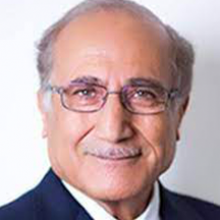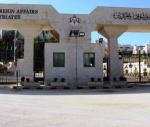You are here
A meeting with Kawar
Aug 13,2018 - Last updated at Aug 13,2018
Mary Kawar, the new planning minister, received her education in anthropology and economics at the two ends of the Atlantic Ocean. She got her bachelor’s degree from Tufts University in Massachusetts, USA. She obtained her master’s and doctoral degrees at the London School of Economics. She worked for the ministries of planning and labour before joining the International Labour Organisation (ILO) in 1997. Twenty years later, she left the ILO, and soon enough was sworn in as minister of planning and international cooperation in Omar Razzaz’s government.
Her academic and work background are both rich and versatile. She is well-published and an avid reader and a serious researcher.
We had chance meetings at certain symposia and fora, but our knowledge of each other was mostly through media. After attending a meeting with her at the Department of Statistics, which falls under her jurisdiction as a minister, I decided to ask for a face to face meeting at her office.
We had that meeting last Tuesday afternoon. We exchanged broad views on the state of the Jordanian economy. As an ex-ILO senior official, I asked her about her plans to deal with unemployment, especially among the youth. Our conversation drifted towards self-employment programmes and the role of small and medium enterprises (SMEs) in addressing this problem of unemployment.
A day before that, I had attended a meeting organised by the Union of Arab Banks under the sponsorship of Central Bank Governor Ziad Fariz. In his address, Fariz enumerated the lines of credit and facilities which the Central Bank of Jordan extends to youth, especially women, for the financing of seed capital to new SME enterprises at subsidised interest rates, which is an honourable effort.
Yet, Kawar and I agreed that SMEs, in a generic definition, are not what should be aimed for. Companies’ comptroller at the Ministry of Industry and Trade registers tens of SMEs every week. He also buries and issues death certificates for many others. The economic metabolism of creating and destroying SMEs has not done the trick.
The kind of SMEs we need to make should be creative, innovative, youth-led and operated, and they should be all combined in meaningful clusters. All giant hi-tech companies in the world started from garages and small office spaces. Yet, we do not have to limit the activities to hi-tech ventures, but to the adaptation and usage of existing technologies.
We can also create organisational arrangements, such as franchises to create series of business in services, even serving coffee and tea along highways, or selling fresh produce in an inviting way.
I came out from the meeting with a very good feeling that we have a planning minister who knows that she needs to prove herself, because she is not well-known to the Jordanian public.
She is also aware of her limitations, but enjoys the spirit to overcome them all. Yet, her extensive international experience gives her the scope to come up with out-of-the – box solutions.













